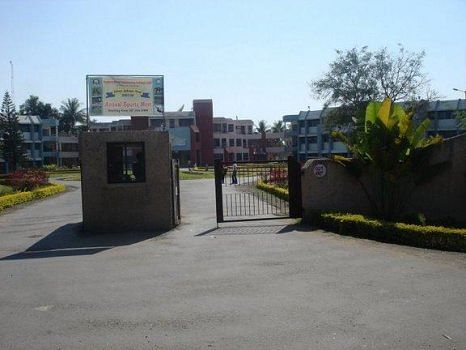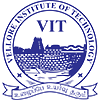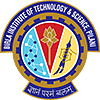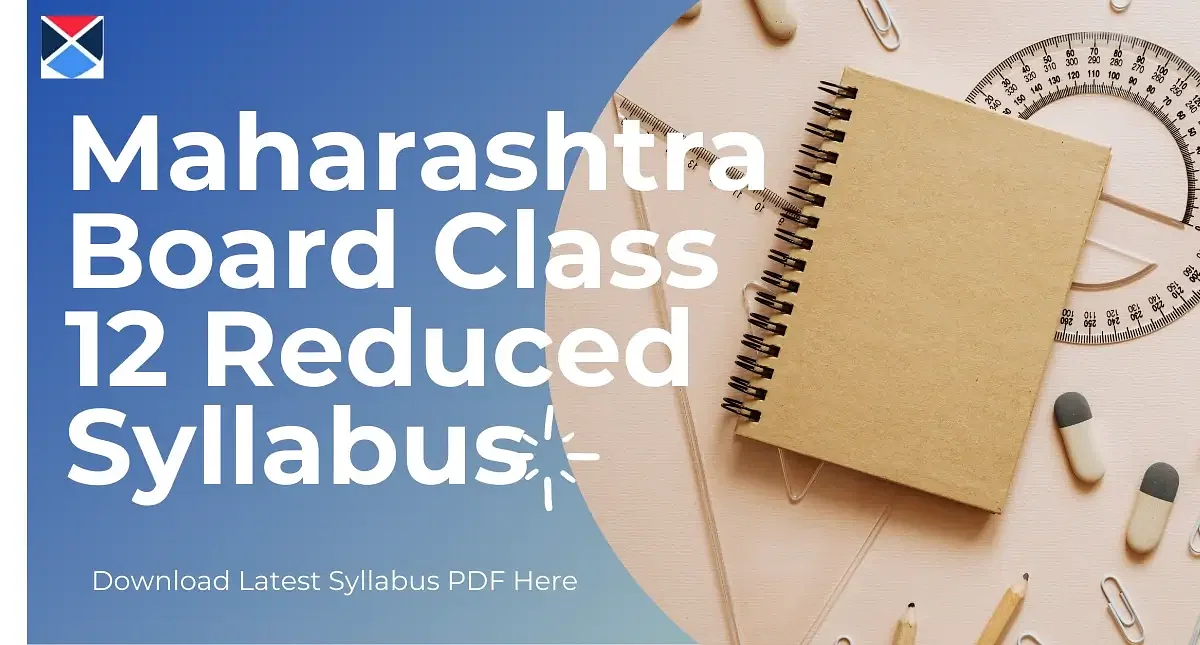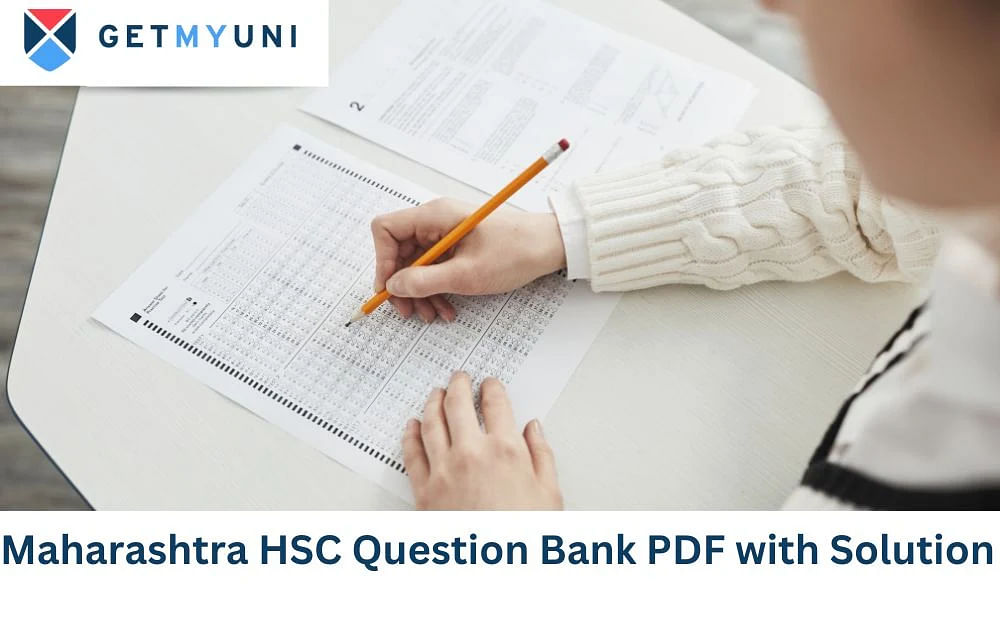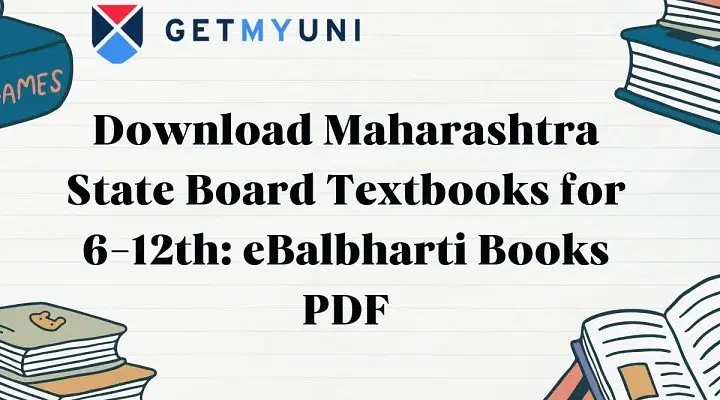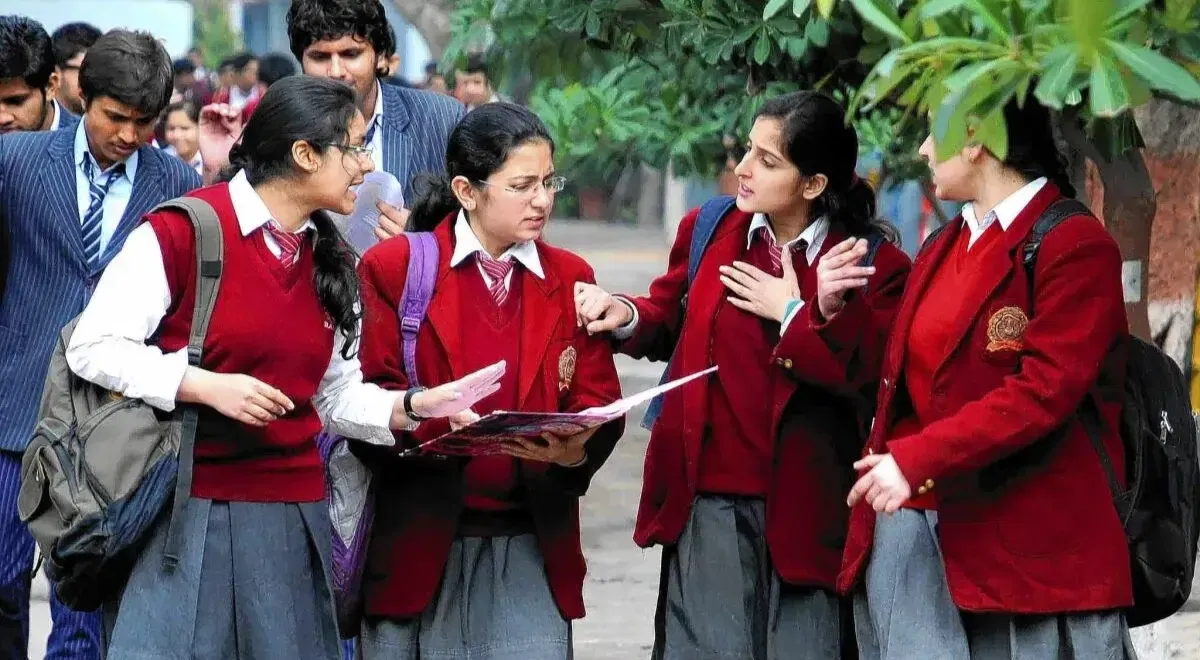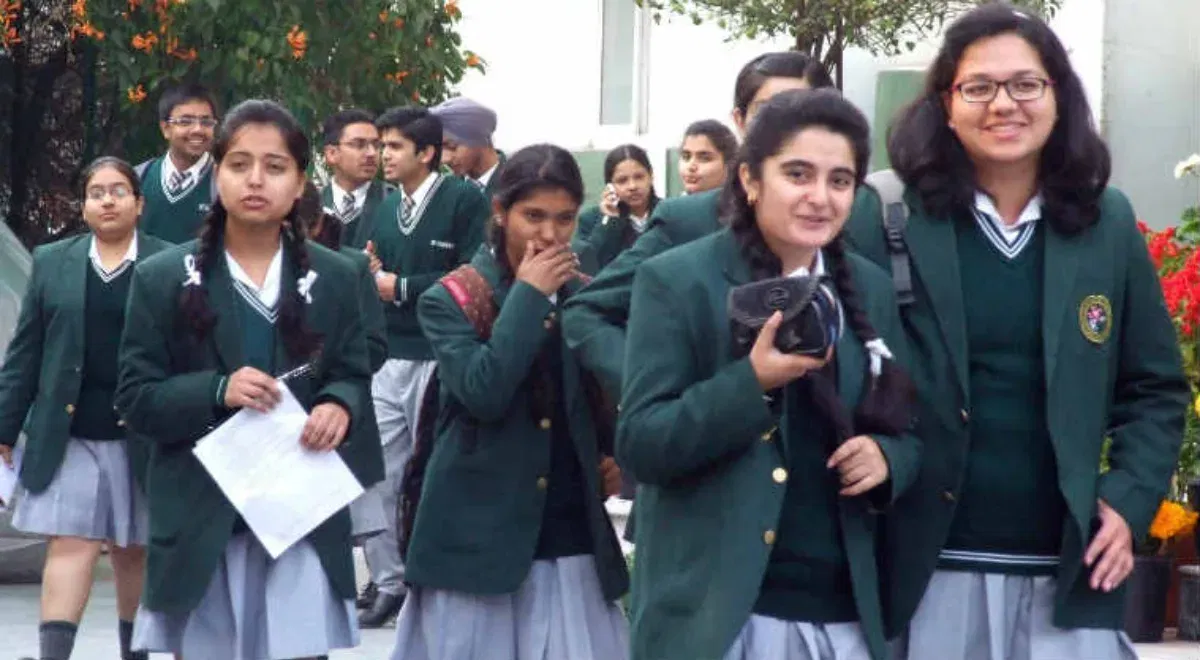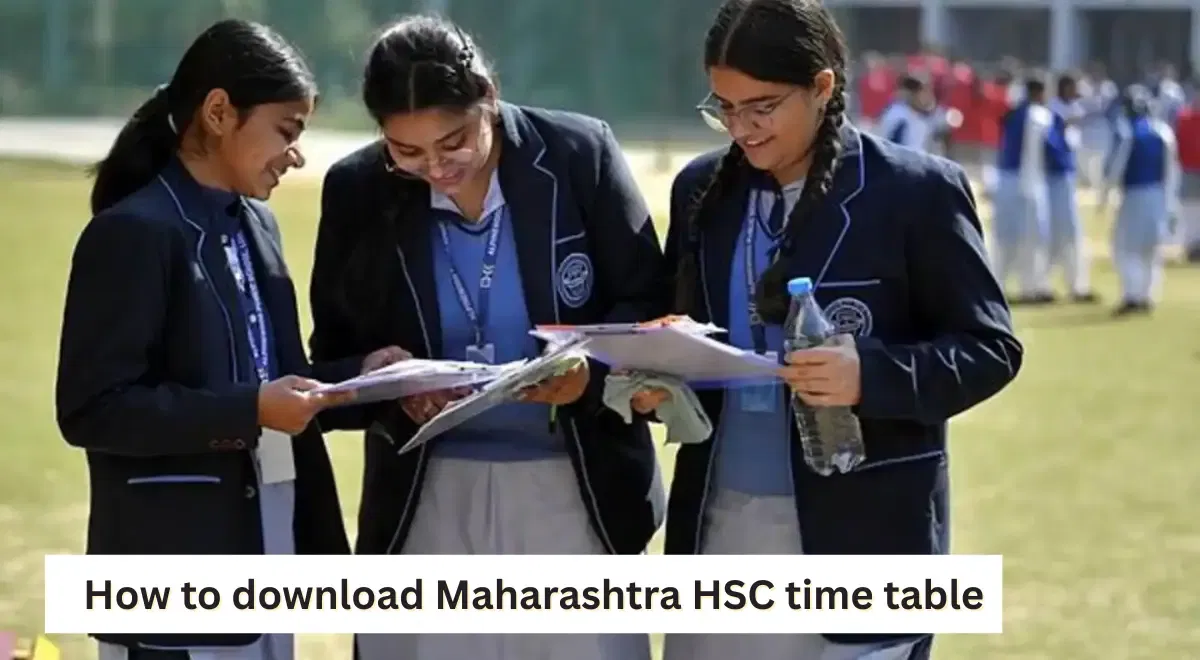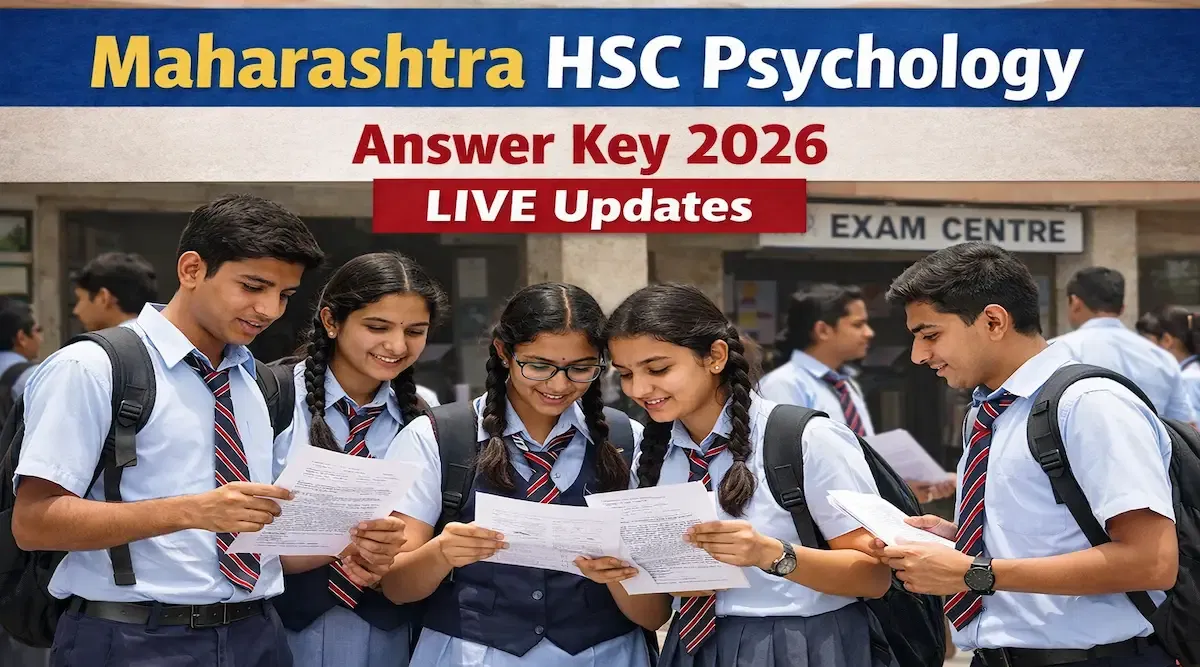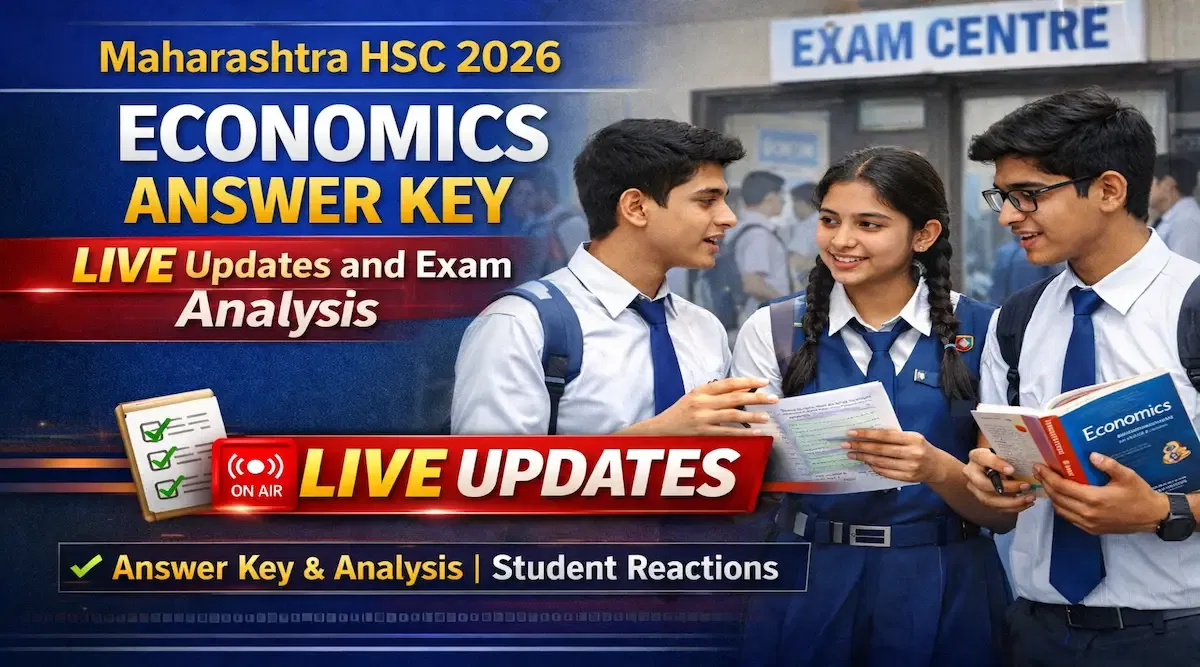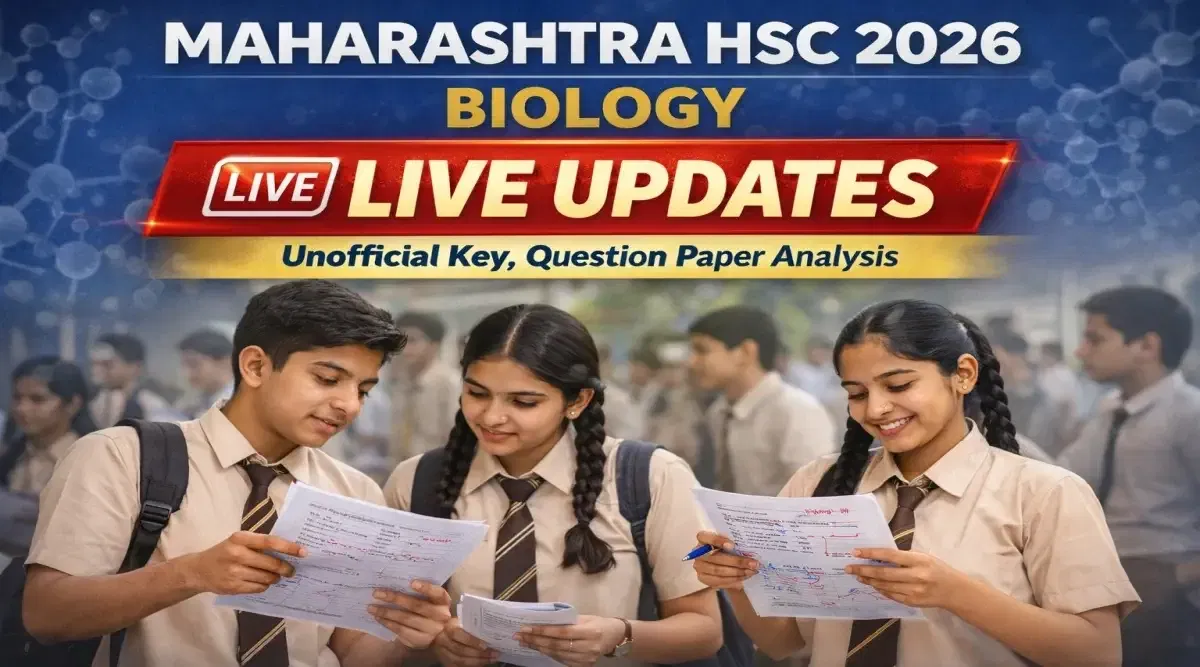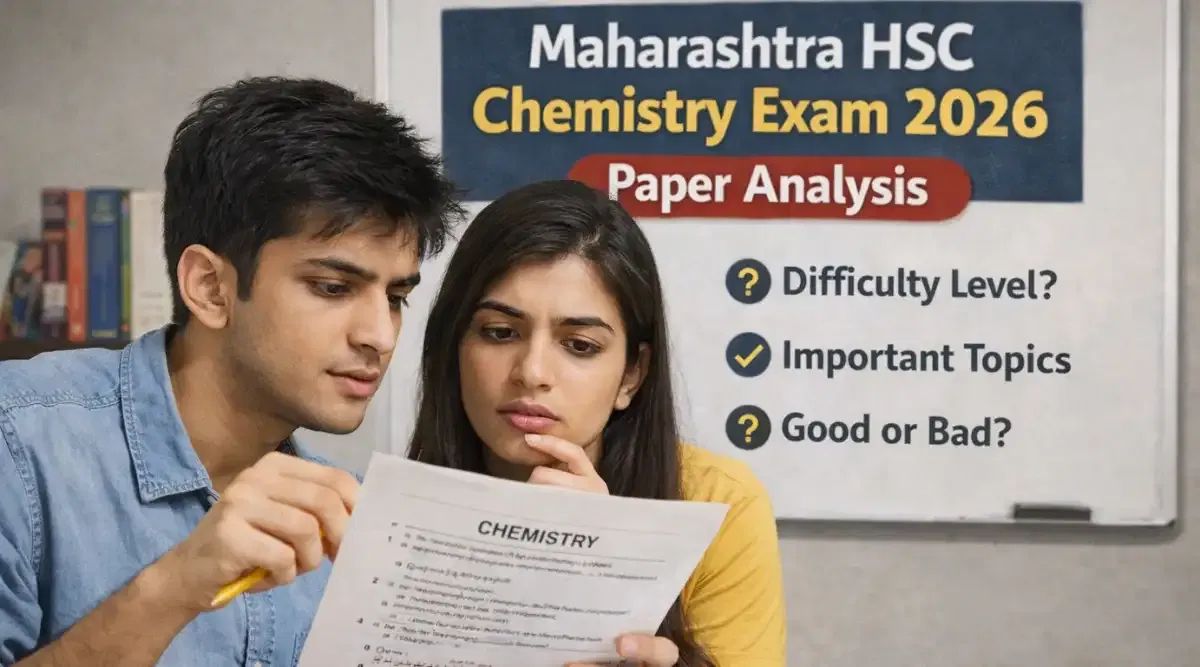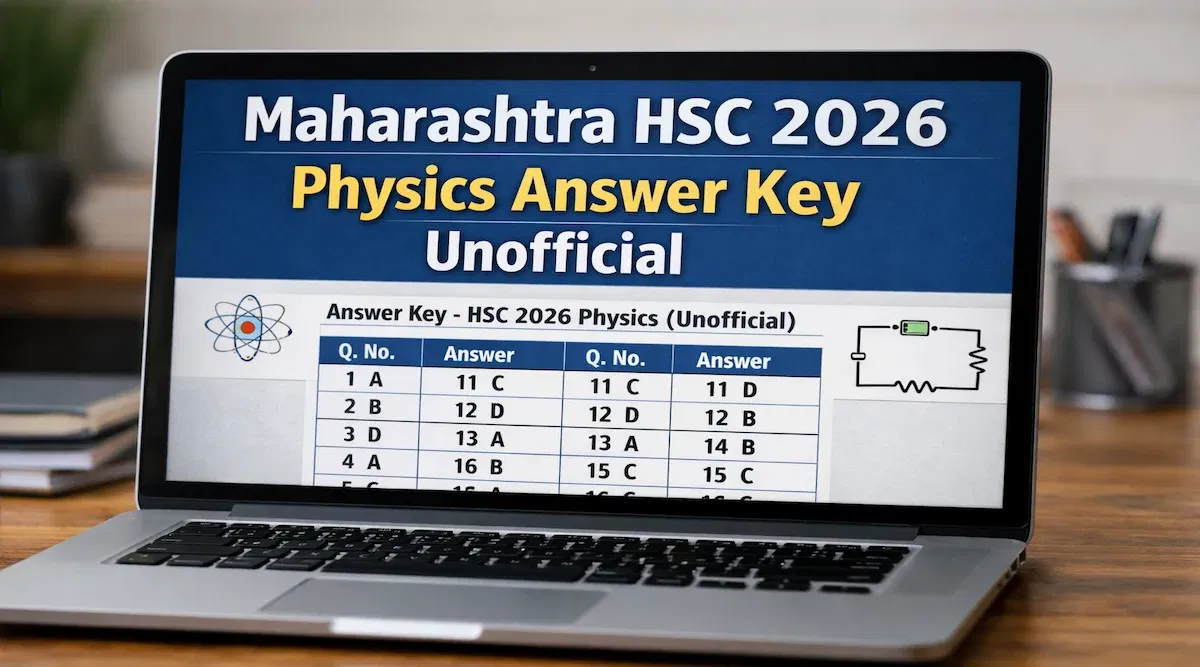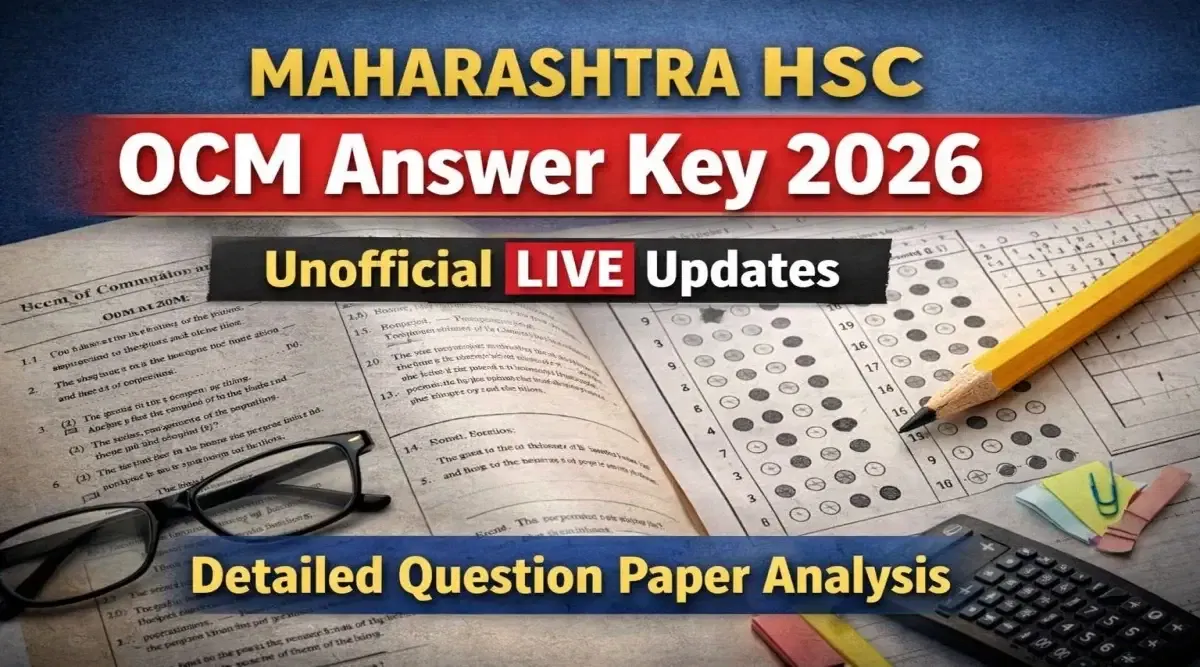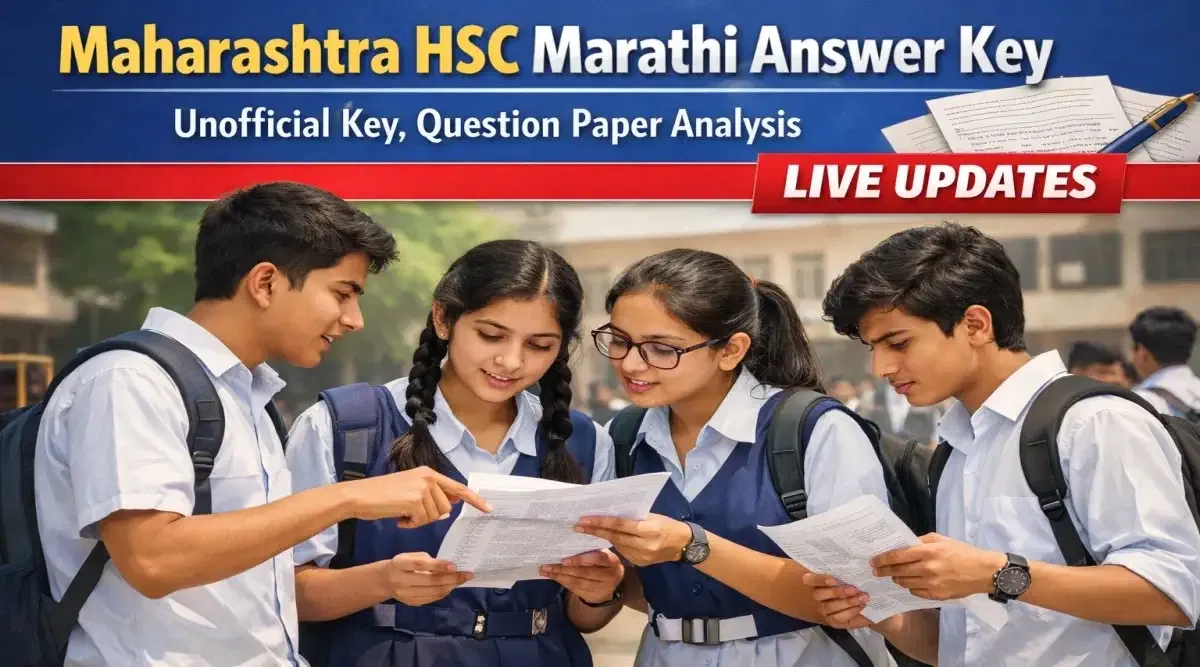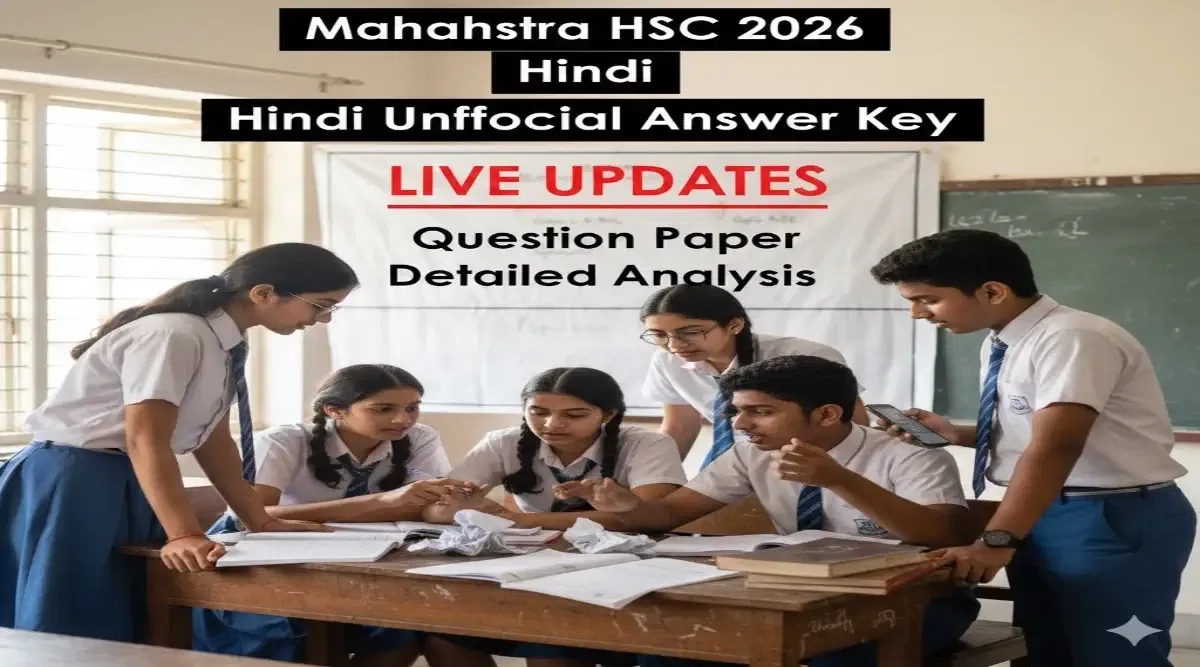Maharashtra HSC Physics Latest Syllabus 2025-26: Download Latest and Revised Maharashtra HSC Physics Syllabus PDF
Table of Contents
The Maharashtra HSC Physics syllabus 2025-26 has been released on the official website in a PDF format. The latest syllabus for Maharashtra HSC Physics includes 20 units and multiple sub-topics. It will help candidates prepare their study schedules strategically.
Candidates must study the syllabus thoroughly before starting their preparation for the Maharashtra HSC Board exam, as a thorough understanding will help them score better in the Maharashtra HSC results. Additionally, there is detailed information given for the syllabus below, including chapter and topic-wise bifurcation.
Maharashtra HSC Physics Syllabus 2025-26: Chapter-Wise
The authorities have released the Maharashtra HSC Physics syllabus 2025-26 in a chapter-wise format on the official website. Along with the chapters there are sub-topics mentioned under each chapter. Candidates must look at the table chapter-wise bifurcation of their syllabus for Physics in a tabular format below.
| Chapters | Sub-Topics |
| Circular Motion | Angular Displacement, Angular VelocityAnd Angular Acceleration, The Relation BetweenLinear Velocity And Angular Velocity, Uniform Circular Motion, RadialAcceleration, Centripetal And CentrifugalForces, Banking Of Roads, Vertical CircularMotion Due To Earth’s Gravitation, EquationFor Velocity And Energy At DifferentPositions Of Vertical Circular Motion.Kinematical Equations For Circular MotionIn Analogy With Linear Motion. |
| Gravitation | Newton’s Law Of Gravitation, Projection OfSatellite, Periodic Time, Statement OfKepler’s Laws Of Motion, Binding EnergyAnd Escape Velocity Of A Satellite, Weightlessness Condition In Orbit, VariationOf ‘g’ Due To Altitude, Lattitude, Depth AndMotion, Communication Satellite And ItsUses. |
| Rotational Motion | Definition Of M.I., K.E. Of Rotating Body, Rolling Motion, Physical Significance of Of M.I., Radius Of Gyration, Torque, PrincipleOf Parallel And Perpendicular Axes, M.I. Some Regular Shaped Bodies About SpecificAxes, Angular Momentum And ItsConservation. |
| Oscillations | Explanation Of Periodic Motion, S.H.M., Differential Equation Of Linear S.H.M.Projection Of U.C.M. On Any Diameter, Phase Of S.H.M., K.E. And P.E. In S.H.M., Composition Of Two S.H.M.’s Having SamePeriod And Along the Same Line, SimplePendulum, Damped S.H.M. |
| Elasticity | General Explanation Of Elastic Property, Plasticity, Deformation, Definition Of stress-strain, Hooke’s Law, Poisson’s Ratio, Elastic Energy, Elastic Constants And Their Relation, Determination Of ‘y’, Behaviour Of Metal Wire Under Increasing Load, Applications Of Elastic Behaviour Of Materials. |
| Surface Tension | Surface Tension based on Molecular Theory, Surface Energy, Surface Tension, Angle Of Contact, Capillarity And Capillary Action, Effect Of Impurity And TemperatureOn Surface Tension. |
| Wave Motion | Simple Harmonic Progressive Waves, Reflection Of Transverse And LongitudinalWaves, Change Of Phase, Superposition OfWaves, Formation Of Beats, Doppler EffectIn Sound. |
| Stationary Waves | Study Of Vibrations In A Finite Medium, Formation Of Stationary Waves On A String, Study Of Vibrations Of Air Columns, FreeAnd Forced Vibrations, Resonance. |
| Kinetic Theory Of Gases And Radiation | Concept Of An Ideal Gas, Assumptions OfKinetic Theory, Mean Free Path, DerivationFor Pressure Of A Gas, Degrees Of Freedom, Derivation Of Boyle’s Law, Thermodynamics- Thermal EquilibriumAnd Definition Of Temperature, 1st Law of thermodynamics, 2nd Law of thermodynamics, Heat Engines AndRefrigerators, Qualitative Idea Of BlackBody Radiation, Wein’s Displacement Law, Green House Effect, Stefan’s Law, MaxwellDistribution, Law Of Equipartition Of EnergyAnd Application To Specific Heat CapacitiesOf Gases. |
| Wave Theory Of Light | Wave Theory Of Light, Huygens’ Principle, Construction Of Plane And Spherical WaveFront, Wave Front And Wave Normal, Reflection At Plane Surface, Refraction AtPlane Surface, Polarisation, Polaroids, PlanePolarised Light, Brewster’s Law, DopplerEffect In Light. |
| Electrostatics | Gauss’ Theorem Proof And Applications, Interference Of Light, Conditions ForProducing Steady Interference Patterns, Young’s Experiment, Analytical TreatmentOf Interference Bands, Measurement Of Wavelength By Biprism Experiment, Diffraction Due To Single Slit, Rayleigh’sCriterion, Resolving Power Of A MicroscopeAnd Telescope, Difference BetweenInterference And Diffraction.Mechanical Force On the Unit Area Of A ChargedConductor, Energy Density Of A Medium, Dielectrics And Electric Polarisation, Concept Of Condenser, Capacity Of ParallelPlate Condenser, Effect Of Dielectric OnCapacity, Energy Of Charged Condenser, Condensers In Series And Parallel, Van-Degraaff Generator. |
| Current Electricity | Kirchhoff’s Law, Wheatstone’s Bridge, Meter Bridge, Potentiometer. |
| Magnetic Effects Of Electric Current | Ampere’s Law And Its Applications, MovingCoil Galvanometer, Ammeter, Voltmeter, Sensitivity Of Moving Coil Galvanometer, Cyclotron. |
| Magnetism | Circular Current Loop As A Magnetic Dipole, Magnetic Dipole Moment Of RevolvingElectron, Magnetisation And MagneticIntensity, Diamagnetism, Paramagnetism, Ferromagnetism based on DomainTheory, Curie Temperature. |
| Electromagnetic Inductions | Laws Of Electromagnetic Induction, Proof Of, E = – Dø/Dt Eddy Currents, Self Induction And Mutual Induction, Need For Displacement Current, Transformer, Coil Rotating In Uniform Magnetic Induction, Alternating Currents, Reactance And Impedance, Lc Oscillations (Qualitative Treatment Only) Power In A.CCircuit With Resistance, Inductance AndCapacitance, Resonant Circuit, WattlessCurrent, Ac Generator. |
| Electrons And Photons | Photoelectric Effect, Hertz And Lenard’sObservations, Einstein’s Equation, ParticleNature Of Light. |
| Atoms, Molecules And Nuclei | Alpha Particle Scattering Experiment, Rutherford’s Model Of Atom. Bohr’s Model, Hydrogen Spectrum, Composition And size nucleus, Radioactivity, Decay Law, Massenergy Relation, Mass Defect, B.E. PerNucleon And Its Variation With MassNumber, Nuclear Fission And Fusion, DeBroglie Hypothesis, Matter Waves – WaveNature Of Particles, Wavelength Of AnElectron, Davisson And Germer Experiment, Continuous And Characteristics X-Rays. |
| Communication Systems | Elements Of Communication System, Bandwidth Of Signals, Bandwidth of OfTransmission Medium, Need for ForModulation, Production And Detection of Amplitude Modulated Wave, Space Communication, Propagation OfElectromagnetic Waves In Atmosphere. |
| Semiconductors | Energy Bands In Solids, Intrinsic AndExtrinsic Semiconductors, P-type and N-type Semiconductor, P-N Junction Diode, I-V Characteristics In Forward And ReverseBias, Rectifiers, Zener Diode As A VoltageRegulator, Photodiode, Solar Cell, I-VCharacteristics Of Led, Transistor ActionAnd Its Characteristics, Transistor As AnAmplifier (Ce Mode), Transistor As ASwitch, Oscillators And Logic Gates (Or, And, Not, Nand, Nor). |
Maharashtra HSC Physics Syllabus - PDF Download
The candidates can access the Maharashtra HSC Class 12 Physics syllabus by clicking the link below. This PDF covers all the supporting information required to effectively prepare for the various examinations.
|
Particulars |
Link |
|
Maharashtra HSC Class 12 Physics Syllabus |
Steps to Download Maharashtra HSC Physics Syllabus 2025-26
Candidates can also download the Maharashtra HSC Physics syllabus 2025-26 from the official website. The steps to download the syllabus for Maharashtra HSC Physics are given below.
- Step 1: Students need to visit the official website of the Educational Board of Rajasthan at mahahsscboard.in/en.
- Step 2: Students then need to click on the link given for the syllabus 2025-26.
- Step 3: Once clicked on the required link, students need to click on the option given for class 12th and choose the subject they want the PDF for.
- Step 4: Students will now be able to see the PDF for the entire syllabus for the academic session 2025-26.
- Step 5: Students can click on the download button, given in the top right corner of the page. It will them if they need it in future.
Preparation Tips for Maharashtra HSC Physics Board Exam
Physics is not an easy subject but constant practice can make students proficient in it. If the students study the core concepts thoroughly, focus on the Maharashtra HSC exam pattern and practice them in writing, they will be able to score good marks in the final examination. Here are some preparation tips that students can follow to score better in the Maharashtra HSC Physics examination.
- Early Start: There is no substitute for hard work. Hence, if candidates begin their preparations early on, they will be able to obtain better results. It will also leave the candidates with some extra time to focus on their weak areas and create their revision schedule.
- Create a Schedule: As Physics includes several important theories and practical topics, the students must study it with their utmost focus. Students are advised to keep a separate time for studying Physics when there is no noise around. Additionally, they can make their place of study distraction-free.
- Prioritise Official Sources First: The first source of information for the students should be the study materials provided by the official authorities, as they will cover all the important aspects of the Maharashtra HSC Physics syllabus 2025-26.
- Practice Sample Papers and Previous Years Question Papers: Previous years' question papers and sample papers are a great tool to prepare, as they include relevant information on the weightage of various topics, how likely they are to appear in the final examination, and root concepts related to them.
- Take Sufficient Breaks: Students should avoid sitting for long periods. They should try to take sufficient breaks and pursue creative activities, go for a walk, or talk to their loved ones. The students are advised to take a break for 10 minutes after every 50 minutes of studying.
Best Books for Maharashtra HSC Physics Syllabus
It is essential to choose study materials that effectively support the preparation for the examination of Maharashtra HSC Physics. Some of the best books on the Maharashtra HSC Physics syllabi are also provided here:
1. NCERT Physics for Class 12:
This basic textbook encompasses all aspects of the syllabus in detail. It offers lucid and simple explanations of the concepts embedded with various examples and numerical questions.
2. Maharashtra State Board Physics Textbook:
It is designed for learners who are taking the Maharashtra State Board. The syllabus has been followed closely with additional held exercises, chapter-wise summaries, and chapter-wise notes with actual practice. All this will embroider this textbook.
3. Concepts of Physics by H.C. Verma:
This book is famous amongst students as well as teachers for its usability. The two book series consists of the subject matter but focuses on how to solve the more important problems. Due to its several problems and detailed explanations, it can be treated as a supplementary book for NCERT textbooks.
4. Understanding Physics Series by D.C. Pandey:
This series is appropriate for all students seeking deep comprehension of concepts and other problems. These books encapsulate all the topics mentioned in the syllabus, and copious exercises are available.
5. Physics for Class 12 by Pradeep:
The book is appreciated for its simplicity and organization in presenting ideas. It has many numerical problems, question papers from previous years, and important theorems and formulas that aid in preparation for the examination.
6. Problems in General Physics by I.E. Irodov:
Admittedly, it is more advanced, and this book may benefit aspirants who want to understand physics more profoundly. It can be used to capture the students' interest through thought-provoking problems.
FAQs on Maharashtra HSC Physics
Q: How many chapters are in the 12th Physics Maharashtra Board?
Q: Is the Maharashtra HSC Physics Syllabus 2025 hard?
Q: How many chapters are there in the Physics Class 11 of the Maharashtra board?
Q: Is there any reduction in syllabus for class 12 2024 Maharashtra Board?
Q: What is the syllabus of class 12th physics?

![Mahatma Phule Agriculture Vidyapeeth, [MPAV] Ahmednagar](https://media.getmyuni.com/azure/college-image/small/mahatma-phule-agriculture-vidyapeeth-mpav-ahmednagar.jpg)
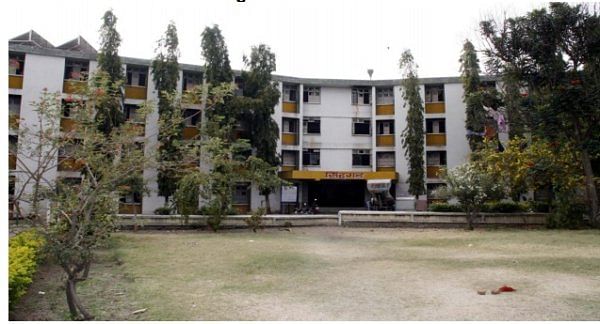

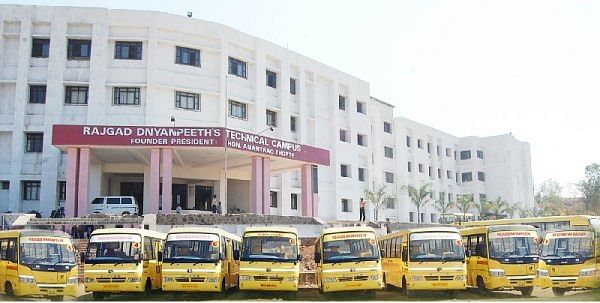


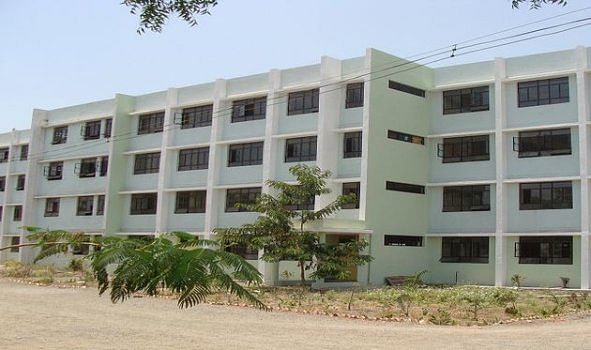
![Shri Sai Baba Institute of Engineering Research and Allied Sciences, [SSBIERAS] Ahmednagar](https://media.getmyuni.com/azure/college-image/small/shri-sai-baba-institute-of-engineering-research-and-allied-sciences-ssbieras-ahmednagar.jpg)
